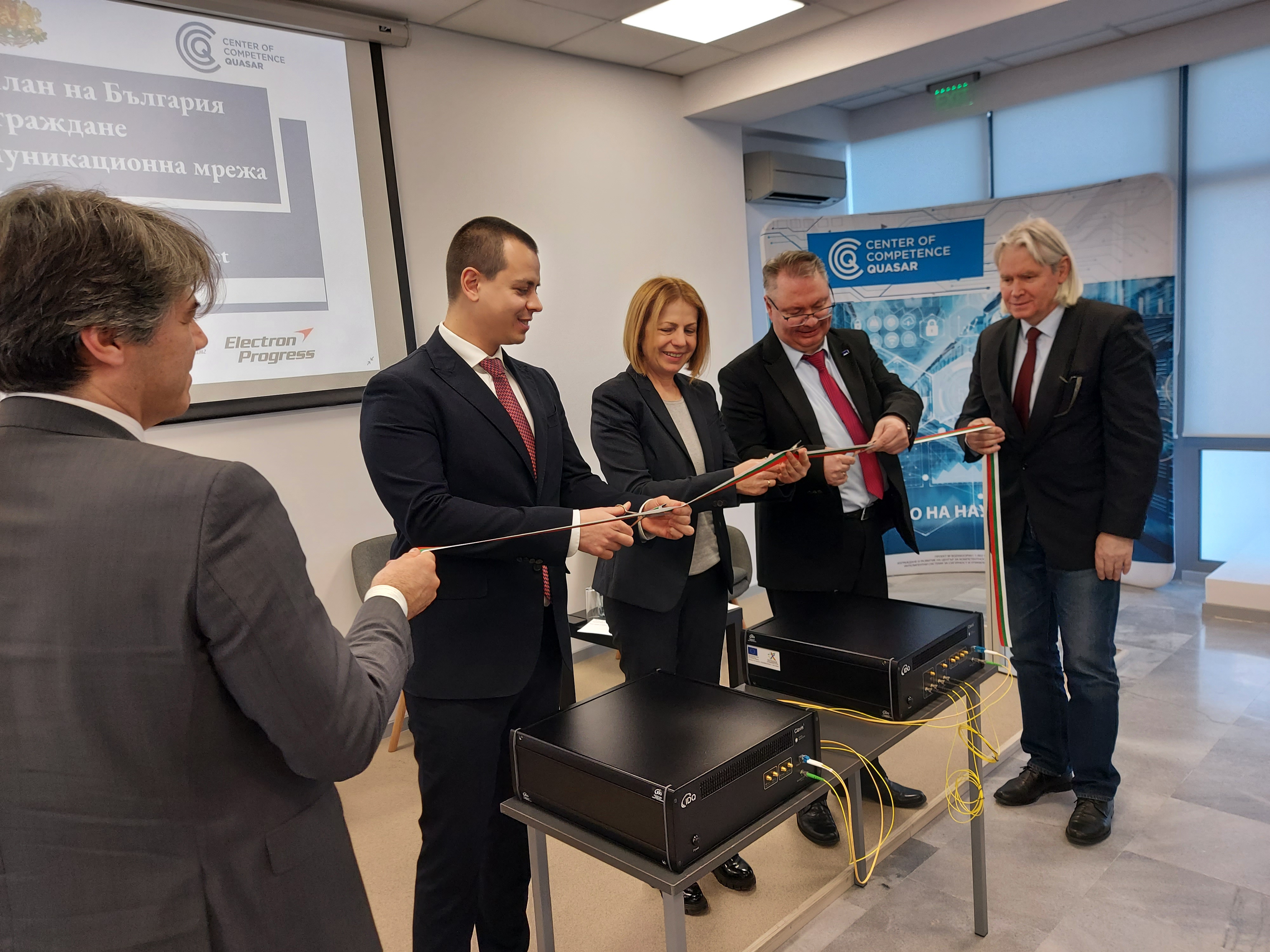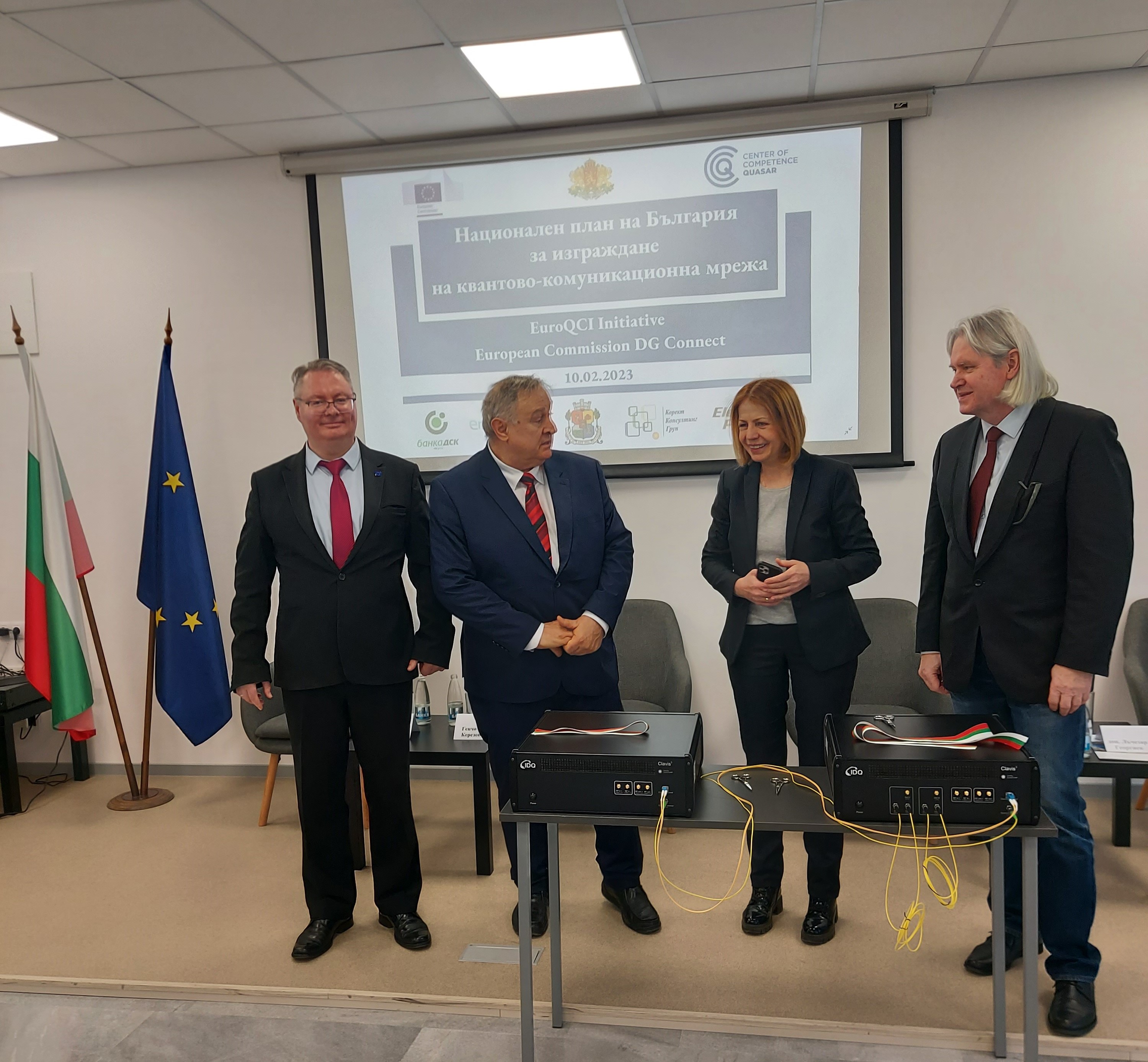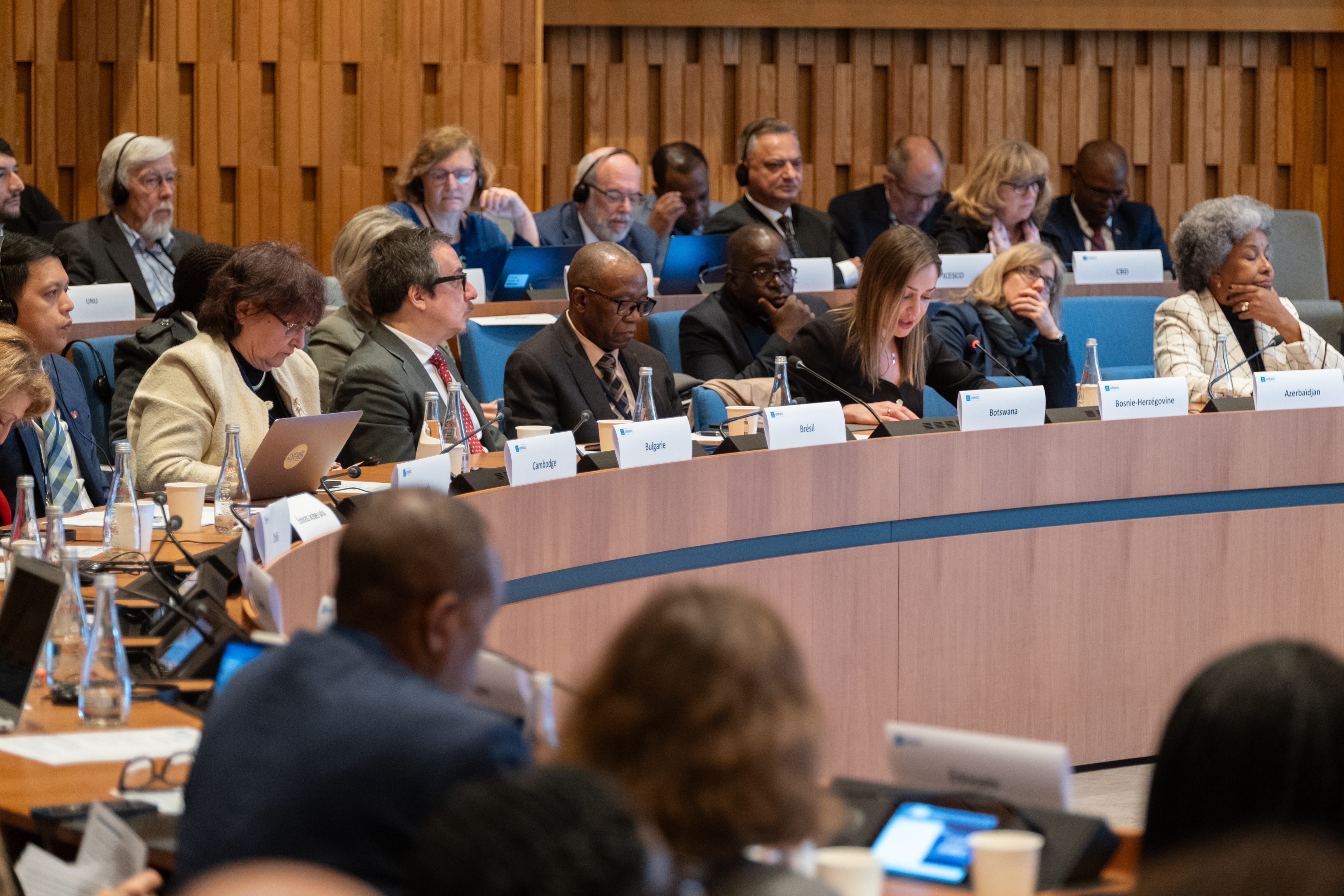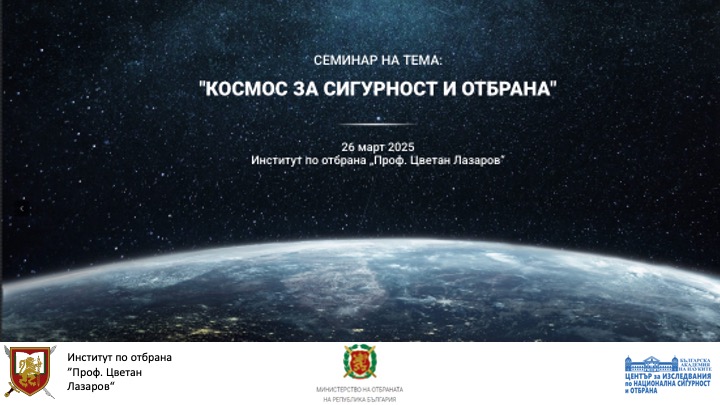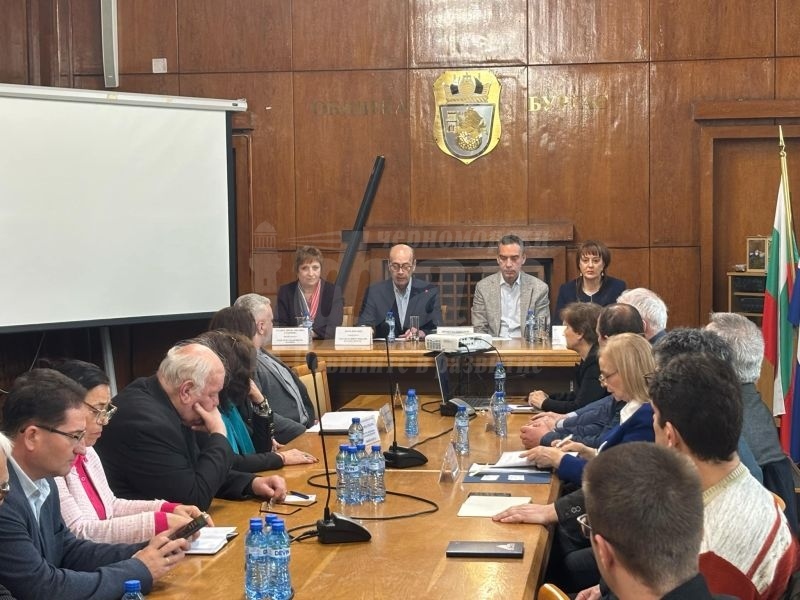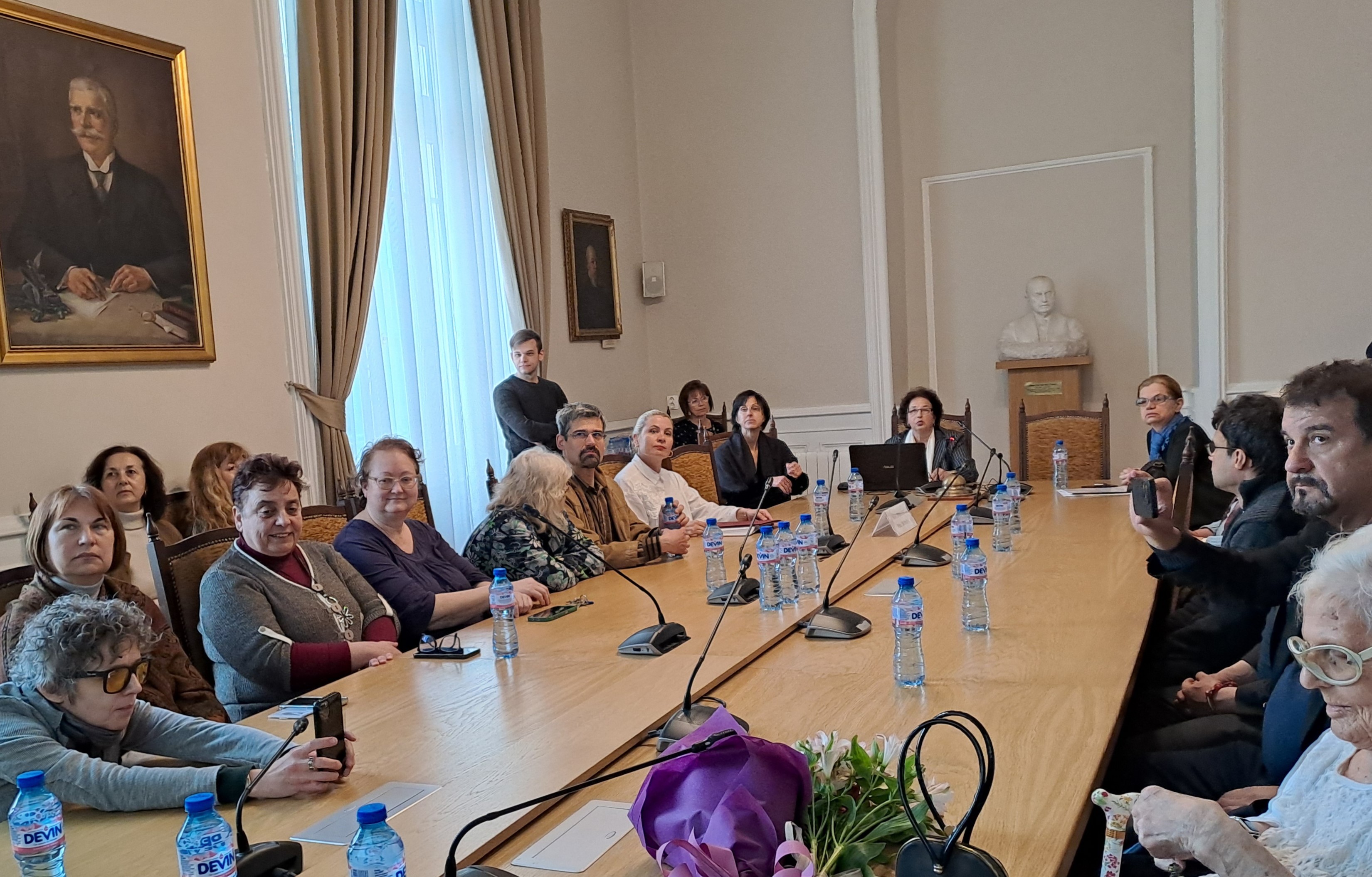The construction of the first of its kind quantum communication network in Bulgaria was officially launched on 10 February. It is implemented within the European initiative EuroQCI – European Platform for Quantum Communication Infrastructure. The initiative is aimed at building a unified quantum-communication network across the European Union, with Brussels aiming to ensure cybersecurity and communication sovereignty. The advanced computing capabilities of quantum computers make standard cyber defence increasingly difficult. It is for this reason that in 2020 the European Commission launched the EuroQCI Initiative, in which the Member States of the European Union participate. Eventually, all networks should be brought together into a single European network through interconnections.
In Bulgaria, the construction of EuroQCI will be coordinated by the National Centre for Quantum Communication, Intelligent Security Systems and Risk Management – QUASAR at the Institute of Robotics of BAS. Within the next thirty months, the Centre’s experts will pilot two quantum routes. With one of them, on the territory of Sofia, the information arrays of the Ministry of the Interior, the Ministry of Defence, banks, hospitals and the Ministry of Transport will be secured. The second route will be 280 km long and will connect Sofia with Greece. “Quantum cryptography is a revolutionary, not just innovative technology that uses the properties of quantum systems to generate secret keys.” This was stated in his welcome address by Assoc. Prof. Lachezar Georgiev – director of INRNE-BAS and head of the EuroQCI Initiative. These encrypted keys are absolutely random and no information can be extracted from them. This is quite different from classical cryptography, where security is based on complex mathematical solutions. In quantum cryptography, breaking the codes is practically impossible, because the security is guaranteed by the properties of the quantum components and the principles of quantum physics. Sofia Municipality, which is an associate partner under the EuroQCI National Plan, will nominate its data centers to be included in the network.
Among the official guests of the event were the mayor of Sofia Mrs. Yordanka Fandakova, the deputy mayor of Sofia Gencho Kerezov, Academician Chavdar Roumenin – director of Center QUASAR, Corresponding Member Evdokia Pasheva and Corr. Mem. Stefan Hadjitodorov – Vice Presidents of BAS, Brigadier General Vasil Sabinski – director of CIS-MoD, Major General Todor Dochev – Commandant of G.S. Rakovski National Defence College, Col. Borislav Genov – Director of the Defense Institute, as well as experts from the Ministry of Education and Science, the Ministry of Transport, business representatives, etc.
In her speech Mrs. Fandakova noted – “I congratulate the QUASAR Center, which will coordinate the National Plan of Bulgaria in this strategic area of key importance for the security of our country. This is both a recognition and a responsibility, and an opportunity for the Bulgarian scientific community and BAS to show its expertise.” Acad. Chavdar Roumenin noted that “in this difficult moment for our neighbours, we must congratulate the Sofia Municipality for its operability and effective organisation. After Azarbaijan, it was the first in the world to respond to the tragedy that struck neighbouring Turkey. Our President provided the necessary infrastructure and teams to assist in the search for people under the ruins of the devastating earthquake. It is in this much-needed area that QUASAR is developing technology for the timely detection of microparticles in tectonic plates folding in the process of seismic activity. This is an original pattern that has a far-reaching future.”
The guests visited the QUASAR Centre at the Institute of Robotics – BAS.


